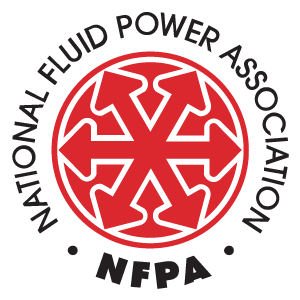As part of an effort to bring more information about the regulatory and legal environment facing American manufacturers, NFPA is monitoring the newsfeed of the National Association of Manufacturers (NAM) and will be bringing important updates like this to the attention of NFPA members.
(September 27, 2024) A bipartisan group of legislators is urging Canada and Mexico to do more to block the imports of goods produced with forced labor in China.
What’s going on: “The two U.S. neighbors should consider passing laws to match a U.S. ban on most imports that can be traced to China’s Xinjiang region, a major exporter of cotton and solar-panel components and an alleged forced labor hot spot,” a group of bipartisan lawmakers wrote in a letter sent to U.S., Canadian and Mexican trade officials on Tuesday.
The Congressmen—Sens. Jeff Merkley (D-OR) and Marco Rubio (R-FL) and Reps. Jim McGovern (D-MA) and Chris Smith (R-NJ)—all serve on the U.S. Congressional-Executive Commission on China, a human-rights watchdog group.
The bigger picture: This communiqué to Mexico and Canada comes a month after the U.S. banned imports from five additional Chinese companies over allegations of human-right abuses involving the Uyghurs, an ethnic minority group. The additions bring the total of banned Chinese firms to more than 70.
Canada agreed to block such merchandise as part of the U.S.–Mexico–Canada Agreement negotiated under the previous administration and has intercepted approximately 50 shipments so far. Mexico is also obligated under the USMCA to prohibit imports produced with forced labor.
U.S. policy: “A crackdown on goods tied to Xinjiang, home to the Uyghur people and other minority groups, began in 2022 and has been a key element of U.S. trade policy toward China. Under the federal Uyghur Forced Labor Prevention Act, all merchandise linked to Xinjiang is assumed to be made with forced labor and can be blocked from entry.”
Under the UFLPA, the U.S. has denied entry or stopped for review approximately 5,200 shipments with a total worth of $1.10 billion.
What they’re saying: The legislators pointed to recent reports that solar panels blocked from entering the U.S. under the UFLPA had been rerouted to Canada for a second try at getting into the U.S.
Recent Posts
Explore Speaker Lineup for NFPA’s 2025 Annual Conference
2025 NFPA Annual ConferenceFebruary 25-27, 2025Tucson, AZRegistration Now Open NFPA’s upcoming 2025 Annual Conference will feature a lineup of expert speakers dedicated to sharing valuable insights and information with attendees. Ranging in topics from geopolitical disruption to the future of fluid power updates, attendees can expect the presentations to provide exclusive content that can’t be found anywhere…
Please Complete and Share Survey on Drivers in Fluid Power Customer Markets
The National Fluid Power Association (NFPA) seeks to engage with stakeholders across the fluid power supply chain to publish a technology roadmap for fluid power in industrial, or in-plant, applications. This roadmap will be a document that describes the evolving needs of companies in fluid power’s many industrial customer markets, the degree to which fluid…
Oxford Economics Winter Fluid Power Forecast Out Now!
Global Fluid Power Report and Forecast includes a global macro summary, by-country customer market forecast & analysis, as well as by-country fluid power industry forecasts. Countries covered in the report: US, Canada, Mexico, Brazil Poland, Netherlands, Italy, Germany, France, Belgium, UK, Russia, Taiwan, South Korea, Japan, Indonesia, India, China, Australia, UAE, and South Africa. Oxford Economics released the…



